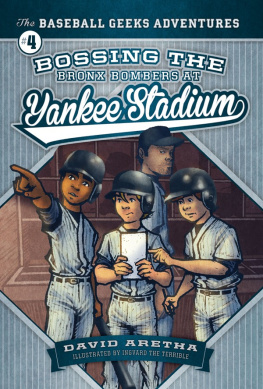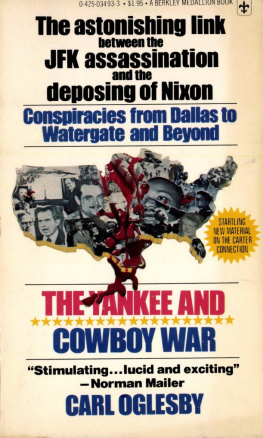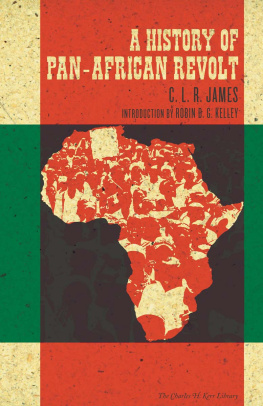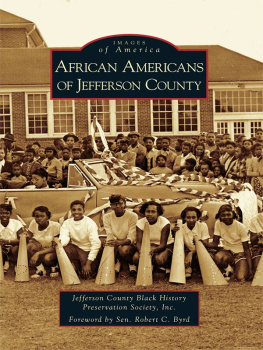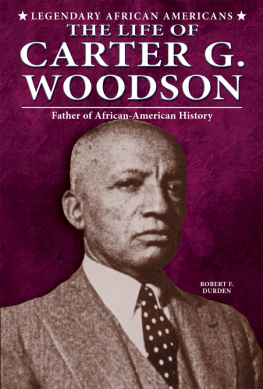From African to Yankee
From African to Yankee
Narratives of Slavery and Freedom in Antebellum New England
Robert J. Cottrol
First published 1998
by M.E. Sharpe
Published 2015
by Routledge
2 Park Square, Milton Park, Abingdon, Oxon OX14 4RN
711 Third Avenue, New York, NY 10017, USA
Routledge is an imprint of the Taylor & Francis Group, an informa business
Copyright 1998 Taylor & Francis. All rights reserved.
No part of this book may be reprinted or reproduced or utilised in any form or by any electronic, mechanical, or other means, now known or hereafter invented, including photocopying and recording, or in any information storage or retrieval system, without permission in writing from the publishers.
Notices
No responsibility is assumed by the publisher for any injury and/or damage to persons or property as a matter of products liability, negligence or otherwise, or from any use of operation of any methods, products, instructions or ideas contained in the material herein.
Practitioners and researchers must always rely on their own experience and knowledge in evaluating and using any information, methods, compounds, or experiments described herein. In using such information or methods they should be mindful of their own safety and the safety of others, including parties for whom they have a professional responsibility.
Product or corporate names may be trademarks or registered trademarks, and are used only for identification and explanation without intent to infringe.
Library of Congress Cataloging-in-Publication Data
From African to Yankee: narratives of slavery and freedom in antebellum New England /
edited with an introduction by Robert J. Cottrol.
p. cm.
Includes bibliographical references (p.) and index.
ISBN 0-7656-0110-9 (hardcover: alk. paper).
ISBN 0-7656-0111-7 (paperback: alk. paper)
1. SlavesNew EnglandBiography. 2. SlaveryNew EnglandHistory.
3. New EnglandRace relations. 4. New EnglandHistoryColonial period,
ca. 1600-1775. 5. New EnglandHistory1775-1865.
6. Afro-AmericansHistoryto 1863. I. Cottrol, Robert J.
E445.N5F76 1998
974'.00496'002922
[B]dc21 97-41904
CIP
ISBN 13:9780765601117 (pbk)
ISBN 13:9780765601100 (hbk)
To Sue, Dora and to John Marshall Cottrol II who was not named after the Chief Justice.
Table of Contents
A number of people were quite generous with their assistance during the completion of this project, and I would like to express my gratitude to them. Paul Butler, Raymond T. Diamond, Paul Finkelman, Don Kates, and Katie Harrington-McBride all made helpful editorial suggestions. George Washington University Law School librarian Scott Pagel provided superb bibliographic support. My research assistant Jeffrey Harrington greatly assisted the project. The tedious work of physically preparing the text was done by Padmaja Balakrishnan, Teresa A. Bush, and especially by Rahaf Keylani. Finally I would like to thank Jack Friedenthal, Dean of George Washington University Law School, for a summer research grant, which greatly aided in the completion of this project.
The narratives in this volume are part of a rich, important and yet often overlooked chapter in American history. There has been a widening interest in Afro-American history since the 1960s. An outpouring of scholarly and popular writings, historical dramatizations like Roots, Glory, and Amistad and the long overdue integration of textbooks on American history have made such topics as antebellum southern slavery, Reconstruction, Jim Crow, and the civil rights movement at least superficially familiar to most Americans. This new interest is certainly welcome. It represents a vast improvement over a time, not too long ago, when most Americans could go through secondary school and even receive a university education, indeed even specialize in American history, without seriously examining the problem of race or the role of Americans of African descent in the nation's past.
Yet as important as the recent interest in black history has been, it has often suffered from too narrow a focus. Most Americans still view the story of blacks in America's past, or at least the past before the Second World War, as an almost exclusively southern story. That is natural. Until quite recently the overwhelming majority of African Americans lived in the South. That region was the site of the most dramatic events in this nation's troubled racial history. The black experience in the South has left indelible marks in the country's history, profoundly influencing even the development of the nation's fundamental charterthe Constitution.
What is often absent from the consciousness of most Americans is that the story of black life in the North has a history at least as long as the more familiar and more dramatic southern history. The history of New England, the home of the authors of the narratives in this volume, provides reminders of the longevity of the black experience in the North and of how that history has been forgotten by many Americans. Africans were first brought to New England in the early part of the seventeenth century. Indeed legislation in the New England colonies explicitly permitted African slavery several decades before slavery was given formal legal sanction in Virginia.
Despite its relegation to the periphery of the consciousness of many Americans, the history of African slaves and their free Afro-American descendants in New England is a fascinating one in many ways similar and in many ways quite different from the larger national story with which we are generally familiar. Slavery lasted for about a century and a half in New England. It formally commenced in the 1640s with the passage of statutes permitting English settlers to enslave captives taken in "just wars," despite the fact that slavery was not recognized at common law and despite the fact that it was regarded by the Puritans as sin against Biblical Law. New England slavery would end with the close of the eighteenth century, a reflection of the influence of the antislavery idealism that prevailed in that region in the wake of the American Revolution. Few slaves were brought to New England, and the overall slave population in that region was small in both absolute and relative terms. New England slaves worked at a variety of occupations. Some were house servants, others permanent apprentices to skilled artisans, still others worked in that region's maritime industry as stevedores or as sailors on merchant or fishing vessels. Some were farmhands. Most lived in small households with the master's family and maybe one or two other slaves or indentured servants or apprentices.
The major exception to the prevailing pattern of small-household slavery occurred in southern Rhode Island. Rhode Island was something of an anomaly in colonial New England. In the mid-eighteenth century colonial Rhode Island had a significant slave presence, approximately 10 percent of the total population. This was far greater than elsewhere in New England. In the southern part of the state large livestock farms employed the closest thing the region had to plantation labor. Slaves were employed in these farms sometimes in crews as large as forty or fifty laborers. These crews were generally combined groups of black slaves and white and Narraganset Indian indentured servants. These crews husbanded dairy cattle, horses and sheep. Colonial Rhode Island's extensive involvement with the African slave trade helped bring a relatively large, by New England standards, black population to the colony.





